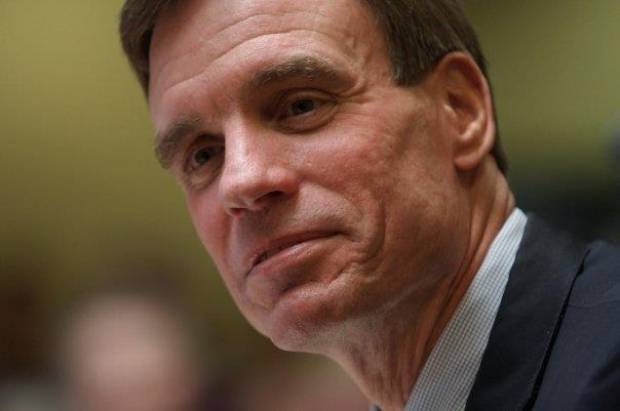Democrats sustained a midterm thrashing this month, with Republicans winning a historic House majority and likely to control 54 Senate seats come January. But Democratic Sen. Mark Warner of Virginia isn’t shedding any tears.
Warner — who prevailed over GOP challenger Ed Gillespie by less than a percentage point, despite polls suggesting the Democrat boasted a double-digit lead — is practically giddy that Mitch McConnell will take over as Senate majority leader in the 114th Congress.
“I think Mark, he’s going to have a little more fun in this next Congress even though he’s in the minority,” retiring GOP Sen. Saxby Chambliss of Georgia told the Washington Post in a new profile of Warner. “Because he’s a guy that wants to get things done.”
Indeed, ask Warner himself, and he’ll tell you that he’s practically a new man. Behold — Warner the Great Centrist Savior has arrived.
“This election reenergized me,” Warner told the Post. “There’s going to be a different framework now, and in many ways, for somebody kind of in the middle who’s about building bipartisan coalitions, there may even be more opportunities for me … I’m looking forward to that.”
And on just what issues does Warner plan to forge “bipartisan coalitions”? Let the senator tell the good lobbyists of Appalachian Power Co. and Capitol One:
From the committee hearing, Warner headed to lunch with the Virginia Chamber of Commerce, where lawmakers mingled with lobbyists from Appalachian Power Co. and Capital One. Rep.-elect Dave Brat (R-Va.), a conservative economics professor who toppled former House majority leader Eric Cantor in the primary this year, nodded as Warner made his familiar pitch for a “grand bargain” on entitlements and the deficit.
The assembled power brokers must have been comforted to know that such a Very Serious Person as Warner sits in Congress’ august upper chamber, displaying the courage to slash the social safety net in the name of Making Hard Choices™ and reducing an already plummeting budget deficit.
And what sacrifices would Warner (net worth: $257 million) ask of the nation’s well-heeled? That sort of nasty partisan question doesn’t interest the good senator as much as “reforming” “entitlements” like Medicare and Social Security.
Warner’s call to gut such programs — undergirded by his fanatical deficit hawkery — makes poor public policy, of course. Undermining Americans’ health and economic security is hardly the recipe for economic prosperity, and with poverty and near-poverty at almost record levels, such proposals smack of utter callousness. Here it should be noted that the real threat to the safety net comes not from the incoming GOP Senate; Republicans won’t control enough seats to thwart a Democratic filibuster. But milquetoast Democrats like Warner can band together with the right to ram through drastic cuts to vital public programs.
So Warner’s Scroogey centrism is terrible public policy. But when it comes to winning elections, centrist posturing makes for good politics, right?
Well, no. Consider Warner’s surprisingly close call against Gillespie, a candidate written off not just by the punditocracy but also by operatives in his own party. As Bloomberg Politics’ Dave Weigel astutely observed, Warner’s “radical centrist” campaign offers an illuminating contrast with the economically populist reelection campaign run by Al Franken, Warner’s fellow Senate freshman. Franken ran ads advocating student loan reform, denouncing “special tax breaks” for the hedge fund industry, and promising to hold the malefactors of great wealth accountable. Warner, on the other hand, bragged about his record as a deficit scold who supported a “bipartisan solution to cut the national debt even if means taking on his own party.”
That centrist message was the crux of Warner’s reelection campaign, and it met with decidedly unimpressive results. As Weigel concluded, “Franken proved that voters respond to direct arguments about their economic angst better than they respond to promises that Washington is going to Fix the Debt.”
Warner shows no interest in heeding that lesson.

